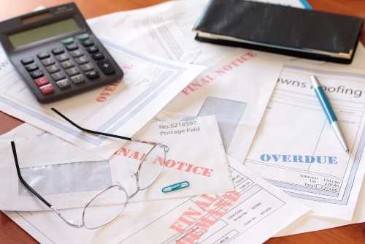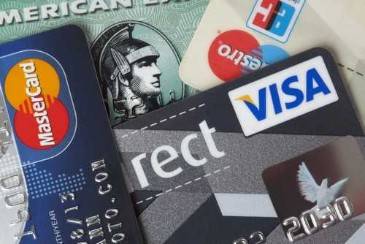The New Jersey Bankruptcy Guide was created by Andrew Carroll, PLLC to guide residents through bankruptcy to a brighter future and obtain maximum compensation for their claim.
New Jersey Bankruptcy Guide
What is Chapter 7 Bankruptcy?
While bankruptcy is a very powerful tool, it should not be used casually. Bankruptcy was designed for financial emergencies. If you’re here reading about chapter 7 bankruptcy, you’re likely in a financial emergency. There are tons of benefits to bankruptcy but there are some very real cons that you need to know about.
In order to file for Chapter 7 bankruptcy, you need to meet certain criteria to be eligible. Chapter 7 is the most frequently filed form of bankruptcy for individuals who are struggling with their finances.
The benefit of being able to file for Chapter 7 bankruptcy is that it will help you eliminate your debt. You do need to consider that in order to eliminate this debt you’re going to have to look at liquidating your assets so that you can pay off said debt.
You will continue to pay monthly payments but your debt will be manageable. That’s why it’s the most frequently filed type of bankruptcy for individuals who are in over their head in debt. If you have any questions of any kind, you can call our South Jersey bankruptcy lawyer as soon as possible.
Understanding Bankruptcy
Money is great when you have it but when you don’t have it that can be the most stressful thing. Money is notoriously hard to manage for a lot of people. Even if you are responsible and save a considerable amount of money, you may end up in debt after one wrong step or one tragedy in your life. It just takes one major event to change your finances from stable to dire. Please understand that if you end up in major debt you have options. That extends beyond chapter 7 bankruptcy. There are plenty of options for you to choose from, including chapter 13 bankruptcy. That is the option that is less frequently filed but still offers a great deal of help for people in debt.
Please also understand that you should not make a decision about bankruptcy based on what people will think of your decision. Bankruptcy is a very personal choice. If you feel like people will judge you for filing bankruptcy, don’t let that stop you from looking into it as an option, at the very least. Filing for bankruptcy is not foolish— in fact, it can be the most responsible thing that you do for yourself if you think bankruptcy is needed. it allows you to start over in a way.
The basis of bankruptcy is letting your creditors know that your debts are going to be either repaid or forgiven. It’s a complicated process that should be handled by someone who knows how it works inside and out. That is why our South Jersey bankruptcy lawyer wants to help people who are navigating this process. It helps a great deal to have someone who knows what they’re doing by your side.
What are the Benefits of Bankruptcy?
No one jumps into bankruptcy thinking that it doesn’t do anything good for them. You’re likely looking for reasons why you should consider filing. This is very frequently asked question. Odds are you are in a very tight spot financially which can be extraordinarily stressful on you. It is likely taking a very large toll on your well-being in general. Going through bankruptcy can seem like a risk for many reasons and it’s scary. You don’t want to add any more stress to your life. We want you to understand that bankruptcy can be used as a tool to help you regain your footing financially. This could be one of the best decisions that you ever make.
The first benefit you will likely notice right away is that your phone will no longer ring multiple times a day with debt collectors. You won’t get any calls or emails or mail about your debt because bankruptcy puts an end to that as soon as you’re officially filed. Bankruptcy might let you keep your car and your house and your precious assets. It can also stop litigation against you due to your debt, which can be a huge relief.
Bankruptcy protects you. It gives you time to figure out how you’re going to make a plan to manage your debt. This will include all of your credit cards and your medical bills, if you have those. Chapter 7 would clean up the debt for you leaving you clear of that in a matter of months, possibly. Chapter 13 could be a little bit more complicated but that is the type of bankruptcy that would protect you from losing your home in your car. Chapter 13 stabilizes you so that your debts can be collected.
Reasons To File for Bankruptcy
If you’re reading this, you’re probably exploring the option of bankruptcy and wondering if this is the right option for you. Some of the reasons people consider filing for bankruptcy are because they have judgments filed against them, which means that your wages could be garnished or your bank account levied (they’ve taken money out of your account.) In many cases, those funds can be recovered and we can stop the wage garnishment. Also, if you’re falling behind in your mortgage, if you’re interested in protecting your home or protecting your car, if you’re just having problems making your monthly bills at the end of the month, you may want to consider bankruptcy, as you can discharge or settle your accounts for pennies on the dollar, depending on which chapter you decided to file for. If you have any questions regarding this, contact our office.
Preparing For Bankruptcy
A lot of people who call our office want to know what they have to do to prepare before they meet with us for their bankruptcy. You’ll need to have the last two months of your pay stubs, your last two months’ bank statements, and also make sure that you are current with the past few years tax filing obligations. Once you have those basic documents in hand, we can sit down with you and discuss what your options are for bankruptcy and help guide you as to whether a Chapter 7 or a Chapter 13 would be most beneficial for you. If you have any more questions about this, please contact our office.
Qualifications For Bankruptcy
When a lot of our clients walk through our doors in our South Jersey office, they want to know, “What are the chances that I’m going to not be accepted for bankruptcy?” For a lot of people, this is a last-ditch effort. They don’t know where else to go or where else to turn. The answer is almost everyone will qualify for more than one form of bankruptcy or another. That’s why it’s important to have an attorney who’s knowledgeable in bankruptcy and experienced with bankruptcy to guide you. The important part of being approved for bankruptcy is making sure you choose the right type of bankruptcy. If you have any questions about whether bankruptcy is right for you or whether you should be considering a Chapter 7 or a Chapter 13, please call our office.
Who Can File For Bankruptcy
Anybody can file for bankruptcy. However, the question is, which bankruptcy is right for you, Chapter 7 bankruptcy or Chapter 13? Chapter 7 would be a complete discharge of your unsecured debts, and a Chapter 13 would be a repayment plan when you want to maintain secure debts, such as a home or a car. If you have any questions about whether bankruptcy is right for you or which bankruptcy is right for you, please contact our office.
 Why You Need A Bankruptcy Attorney
Why You Need A Bankruptcy Attorney
It’s important to have a bankruptcy attorney to help guide you through this process. It’s important to make sure that your documents are filed on time and that you’re filing for the correct bankruptcy. You need somebody to help you decide whether a Chapter 7 or a Chapter 13 would be beneficial for you. Also, for people who are concerned about losing their home or their car, you need an attorney who knows what they’re doing to be able to stop share of sales and to recover your car if it’s been repossessed. Individuals, too, whose wages have been garnished or whose bank account has been levied, you need a skilled attorney, an experienced attorney who can recover those funds for you.
Foreclosures After Filing For Bankruptcy
The other day I was talking to a potential New Jersey client and one of her concerns was, “If I file for bankruptcy, can the mortgage company still foreclose on my home?” The answer is no. Bankruptcy prevents the mortgage company from foreclosing on your home. If you have any questions about whether this option is right for you to protect your home, please call our office.
The Duration Of A Bankruptcy On Your Credit Report
I got a phone call the other day from a potential client wanting to file for bankruptcy. One of the big questions that a lot of people have and is foremost in their concerns is, “How long does a bankruptcy stay on my credit report?” It would depend on the type of bankruptcy filed. A Chapter 7 bankruptcy will reflect on your credit report for up to ten years, and a Chapter 13 for seven years. During that time, it’s important to know that your credit health will improve, your credit score will improve, and you can actually be approved for a mortgage or a car loan within two years.
Dealing With The Creditors After Bankruptcy
A question some clients have is, “What do I do if my creditors contact me after I’ve already filed for bankruptcy?” The answer is they should not be contacting you. However, if they do, inform them that you are in bankruptcy and give them the number of your attorney. If you have any other questions regarding this, please contact our office.
How A Spouse’s Bankruptcy Affects Your Credit Score
A question that we get a lot from married clients is, “Will my filing for bankruptcy affect my spouse’s credit score?” The answer is no. It is important, however, to understand that in your bankruptcy filings both incomes will be considered. If you have any more questions regarding this, please feel free to call our office.
Falling Behind On Mortgage Payments
A lot of potential clients who call our office wonder about whether or not it’s too late to file for bankruptcy once they’ve already fallen behind on their mortgage payments. The answer to that question is it’s probably the perfect time for you to file for bankruptcy. Filing for bankruptcy can protect your home from being foreclosed on or from going up for a share of sale. If you have any more questions about this, please contact our office.
 Filing For Bankruptcy With Your Spouse
Filing For Bankruptcy With Your Spouse
Another question that we find comes through our office a lot is from married couples or married individuals who wonder if they file for bankruptcy, does their spouse also have to file for bankruptcy? The answer is, no, you can file individually. Sometimes, however, it is beneficial for both partners to file together. Should you choose to file jointly, here in our office, we do not charge extra for the spouse filing jointly, but it is not a requirement. You must consider or you must understand, however, that the income for both spouses will play into the bankruptcy, whether both or one file.
Rebuilding Your Credit After Bankruptcy
A concern that’s expressed by our South Jersey clients as they go through the bankruptcy process is, “Where do I go from here? How do I rebuild my credit? Is there credit after bankruptcy?” The answer is yes. Though your credit score will take a hit initially, within six to nine months it will improve and you’ll begin to see offers for credit cards come through the mail. We recommend taking those credit card offers, utilizing that credit and paying it off every month. Until that point, you have to make sure you’re current with your mortgage payments or your rental payments, as well as all your utilities. Making all these regular monthly payments helps you to reestablish your credit and helps your credit score to go up. If you have any questions regarding this, please feel free to contact our office.
Credit Counseling Courses Required For Bankruptcy
In New Jersey, one of the requirements for filing for bankruptcy is that you have to take a credit counseling course. This course can be done online and takes about 45 minutes to an hour to complete. It is fairly inexpensive and fairly easy to take. If you have any questions about credit counseling courses or anything else related to your bankruptcy, or are wondering what you might need to do to prepare and what your obligations are, please contact our office.
Choosing The Right Bankruptcy Attorney
When looking for a bankruptcy attorney in New Jersey, of course, you want somebody who is part of the New Jersey Bar, but you also want an attorney who’s practice concentrates on bankruptcy. You also need an attorney who is experienced in foreclosures and mortgage remodifications, which we here at All Jersey Bankruptcy are. If you have any more questions concerning that, call our office and we’ll be happy to answer you about our credentials.
How Bankruptcy Affects Your Credit
A lot of South Jersey clients who call our office ask, “How is bankruptcy going to affect my credit?” You will see your credit score dip at first, but within six to nine months your credit health begins to improve. You’ll see offers for credit cards coming through the mail. We recommend that you utilize some credit and pay it off. Within two years, you will be eligible for a mortgage, as well as a car loan.
What Happens To Your House And Car In A Bankruptcy
In talking to people who are considering bankruptcy, the number one concern most people have is, “Will I lose my home or my car?” The answer is no. In fact, quite the opposite is true. Bankruptcy is a means to protect your home and your car, as well as other assets. If you are in danger of losing your home or your car, or you just want to protect your home from a share of sale or a foreclosure, please call our office for more information.
Secured And Unsecured Debts
Another question our South Jersey clients have is, “What’s the difference between a secured creditor and an unsecured creditor?” Unsecured debts would be things like credit cards or medical bills. Your secure debts would be items such as your car or your home. If you have any more questions about the types of debts that you have or whether they fall under the secured or unsecured category, please contact our office.
Filing For Bankruptcy When You Have Previous Judgments
Here in our South Jersey office, a big question we have from people exploring the option of bankruptcy is, “Can I not file if I already have judgments against me?” The answer is, yes, you can. As a matter of fact, those judgments are a good reason to file for bankruptcy, as we can stop the wage garnishment and maybe even, in some cases, recover the lost monies. If you have any questions about whether this is right for you or how it can help your situation, please call our office.
 Chapter 7 Bankruptcy
Chapter 7 Bankruptcy
Many of our South Jersey clients who are exploring bankruptcy want to know specifically if Chapter 7 bankruptcy is right for them, or what a Chapter 7 bankruptcy is. A Chapter 7 bankruptcy is best suited for individuals who have a lot of unsecured debts, like credit cards or medical bills, but are current with their mortgage and car payments. If you have any question about what Chapter 7 bankruptcy is and how it can help you, or what your other options are, please contact our office.
Choosing The Right Attorney For A Chapter 7 Bankruptcy
A common mistake we’ve seen a lot of clients make is thinking they can go without any attorney when filing for bankruptcy. When you’re filing for bankruptcy, it’s important that you have an attorney who is experienced in bankruptcy, whose practice is primarily bankruptcy, and who is also well versed in mortgage remodifications and foreclosures, as those can come into play with your bankruptcy. If you have any questions, please contact our office.
Converting A Chapter 7 To Chapter 13
Just the other day we had a client convert from a Chapter 7 to a Chapter 13. This is very common. As situations change, things do come up during course of the bankruptcy filing that can make this necessary. It’s very common to transfer from a Chapter 13 to a Chapter 7, or from a Chapter 7 to a Chapter 13. If you have any questions about this, please contact our office.
Chapter 7 Bankruptcy Timeline
Another common question we often get in our South Jersey office is, “How long does it take to file a Chapter 7 Bankruptcy?” In an emergency situation, the documents can be filed within one to two hours. Under normal circumstances, the documents will be filed within one to two weeks. A month after that, you will have your hearing and, within about four months, your debts will be discharged. If you have any questions about this process, please contact our office.
Cost Of A Chapter 7 Bankruptcy
Probably the number one question we get in our office is, “How much is this Chapter 7 bankruptcy going to cost me?” A good baseline price is about $1,500. Although, depending on the complexity of your case, that number could go up or down. It’s also important to remember that here, in our office, we do not charge if a spouse is included in that Chapter 7 bankruptcy. If you have any questions about our pricing or how we can help you in your situation, please contact our office.
Keeping Credit Cards After Filing A Chapter 7 Bankruptcy
Many of our South Jersey clients that call our office want to know, “Am I able to keep my credit cards in a Chapter 7 bankruptcy?” In a word, no, you cannot keep your credit cards. However, about six to nine months after your Chapter 7 bankruptcy is discharged in South Jersey, you will begin to receive credit card offers in the mail. At that time, it is a good idea to utilize that credit so you can begin to reestablish your credit.
 Assets Protected By A Chapter 7 Bankruptcy
Assets Protected By A Chapter 7 Bankruptcy
When exploring the option of bankruptcy, a big concern for a lot of our clients is, “What assets can I protect?” Two of the biggest assets that do impact people’s lives are your home and your car. Those assets can be protected in a Chapter 7 or Chapter 13 bankruptcy, if it is processed correctly. If you have any questions about this, please call our office.
Non Dischargeable Debts In A Chapter 7 Bankruptcy
When speaking with potential clients in South Jersey, one of their biggest questions is, “Are there debts that I can’t discharge in my bankruptcy?” There are. Taxes, spousal obligations, child support, and student loans are some examples of debts that cannot be discharged in bankruptcy. If you have any question about whether or not your debts are dischargeable or if bankruptcy can help you, please call our office.
Forgetting To List A Creditor In Chapter 7 Bankruptcy
The other day we got a phone call in our office from a client here in South Jersey who is filing for Chapter 7. She was quite nervous because she realized that she forgot to add a creditor onto her bankruptcy. What we do in a situation like that is we file an amendment. Amendments are very common, and they happen very often in Chapter 7 bankruptcy, as situations can change during the course of your bankruptcy filing. If you have any more questions about this, please feel free to contact our office.
Automatic Stays In A Chapter 7 Bankruptcy
I was speaking with a potential Chapter 7 bankruptcy client in my South Jersey office the other day, and they heard about this term called an automatic stay. They wanted to know what an automatic stay was. An automatic stay protects you from having your wages garnished, your bank account levied, or your home foreclosed on. It’s a bar that protects you legally from having the collectors trying to collect on the monies that you owe them. If you have any more questions about an automatic stay or how bankruptcy can help you, please contact our office.
Chapter 7 Bankruptcy Means Test
Another common Chapter 7 bankruptcy question we get from our South Jersey clients is, “What exactly is the means test?” When filing for a Chapter 7 bankruptcy, the means test is a comparison of your annual household income against the number of people residing in your home. If it is over a certain threshold, you will not qualify for a Chapter 7 bankruptcy. You may still qualify, however, for a Chapter 13 bankruptcy. If you have any questions about whether a Chapter 7 or a Chapter 13 bankruptcy is better suited for you, or where you fall in the means test, please feel free to contact our office.
Wage Garnishments In A Chapter 7 Bankruptcy
In our South Jersey office, we get a lot of questions from people who are actually having their wages garnished presently, and they want to know if Chapter 7 can help them. The answer is, yes, a Chapter 7 bankruptcy can help you with your wage garnishment. We can actually stop that and, in some cases, recover the monies that have already been taken. If you have any questions about how Chapter 7 can help you or if Chapter 7 is right for you, please contact our office.
Life After A Chapter 7 Bankruptcy
When speaking with potential clients, the question comes up, “What’s my life going to be like after I’ve filed for Chapter 7 bankruptcy in South Jersey?” The answer is life does get better. There’s credit after bankruptcy, and there is life after bankruptcy. During this time, after all your debts are discharged, you will find it’s easier to make your monthly payments, as you don’t have these outstanding debts. You’ll be able to pay your utilities on time, your rent or mortgage on time. You’ll be able to keep your car. Your monthly bills and your monthly budget will be easier to manage. When you have your finances in order, life, in general, is better. If you have any questions about how we can help you or how bankruptcy can help you, or which bankruptcy is right for you, please contact our office.
 Chapter 13 Bankruptcy
Chapter 13 Bankruptcy
In speaking to clients about Chapter 7 or Chapter 13 bankruptcy, they want to know how the Chapter 13 bankruptcy helps them. A Chapter 13 bankruptcy is generally for individuals who have debts that are not dischargeable, such as taxes, student loans, alimony or child support. It’s also for individuals who are having trouble managing their debt, but whose income is too high to file under a Chapter 7 bankruptcy. A Chapter 13 also helps to protect your home from foreclosure or from a share of sale. If you have any questions about whether a Chapter 7 or a Chapter 13 is right for you, please feel free to contact our office.
Why You Should File For Chapter 13 Bankruptcy
A common question we have from our South Jersey clients is, “Why should I choose Chapter 7 over a Chapter 13?” There are various reasons for that, one of them being maybe you’re income is too high in the Chapter 7 Means Test. Also, if you have unsecured debts that are not dischargeable, such as alimony, taxes or child support, or student loans, you would want to consider a Chapter 13. If you have any questions about whether a Chapter 7 or a Chapter 13 bankruptcy is right for you, please contact our office.
Choosing The Right Attorney For A Chapter 13 Bankruptcy
When filing for Chapter 13 bankruptcy in South Jersey, it’s important to make sure that you have the right attorney. You need to look for an attorney who is experienced in Chapter 13 as well as Chapter 7 bankruptcy, has a background in mortgage remodifications and has experience in foreclosures. If you have any questions about whether you should file for a Chapter 7 or a Chapter 13, please contact our office.
Chapter 13 Bankruptcy Timeline
I was talking to a Chapter 13 client the other day and they wanted to know right up front, “How long is this Chapter 13 bankruptcy plan going to take?” The answer is an emergency petition can be filed in about one to two hours, but under normal circumstances, it takes one to two weeks to complete the actual filing, and the plan will last three to five years. If you have any more questions about how this works, please contact our office.
Cost of A Chapter 13 Bankruptcy
Here in our South Jersey office, when clients come in, cost is often a major concern on their minds. They’re already having trouble paying their debts and they want to know, “How much is it going to cost me to file for Chapter 13 bankruptcy?” Generally, there’s a small upfront fee of $750 to $1,000, but the remaining balance can be wrapped into the Chapter 13 trustee repayment plan. If you have any questions about Chapter 13 costs and how it’s wrapped into your plan, or whether a Chapter 13 bankruptcy is right for you, please call our office.
Chapter 13 Bankruptcy Trustees
When talking to clients at our South Jersey office, they often want to know, “Who is this trustee? What do they do, and what part do they play in my bankruptcy plan?” The trustee is an individual who actually has the best interest of the creditors in mind. They will go over your assets, your debts, and your liabilities during your hearing. Creditors almost never show up to these hearings, but the trustee is there to make sure that everything is in order, and they will be the one who disperses your monthly payments. If you have any more questions about how Chapter 13 bankruptcy works, or what role the trustee will play, please feel free to contact our office.
Income Paid To The Chapter 13 Trustee
A common question we have from our clients in our South Jersey office is, “In Chapter 13 bankruptcy, how much of my paycheck am I required to use to pay back to my debt?” The answer is there’s no one-size-fits-all solution. Every case is different. We don’t know going into it how much will be going into that repayment plan. If you have any more questions, please contact our office.
Discharging Student Loan Debt In A Chapter 13 Bankruptcy
A question that sometimes comes up in our office with Chapter 13 clients is, “In New Jersey, am I able to put my student loans on my Chapter 13 bankruptcy?” The answer is, yes, that can be done, but the real question you need to be asking is if it’s a good idea for you to do that. Does it fit your situation? Does it benefit you? In some cases, it does not benefit you to put your student loans on your Chapter 13 bankruptcy. To determine if this is a good option for you, or to uncover what some of your other options may be, you do need to have a bankruptcy attorney look at your situation. If you have any questions, feel free to contact our office.
Paying Off Debts In Full
A common question we get from our Chapter 13 clients here in our South Jersey office is, “Am I required to pay back all my debts in full? After all, Chapter 13 is a repayment plan.” It depends on what kind of debt it is. Some debts you’re required by federal law to pay back in full, while other debts can be paid for at pennies on the dollar. If you have any questions about what must be paid in full or what will be paid for pennies on the dollar, or if Chapter 13 bankruptcy is right for you, please call our office.
 Credit Card Debt In Your Chapter 13 Repayment Plan
Credit Card Debt In Your Chapter 13 Repayment Plan
Credit card debt is a big concern for a lot of our clients here in our South Jersey office, and they want to know, “If I file for Chapter 13 bankruptcy in South Jersey, will my credit cards be included in that debt?” The answer is, yes, they can be included in your debt. You will pay either pennies on the dollar or nothing at all, in some cases, for your credit cards. If you have any questions about how credit cards play into your Chapter 13 bankruptcy, please contact our office.
Assets Protected In A Chapter 13 Bankruptcy
Many of our clients here in South Jersey ask, “What assets can be protected in a Chapter 13 bankruptcy?” The two biggest assets, and the ones that are usually on people’s minds and that they’re most concerned about are their home and their car. Those types of assets can be protected in a Chapter 13 bankruptcy. If you have any questions about how Chapter 13 can protect your assets, or if Chapter 13 is the right fit for you and your situation, please contact our office.
Missing A Chapter 13 Scheduled Payment
Another question we get from our Chapter 13 clients in our South Jersey office is, “If I miss a payment, what happens? After all, Chapter 13 bankruptcy is a repayment plan.” What happens when you miss a payment is the trustee will send you a warning letter. Remember, this is the person who is handling your payments every month to your creditors. They’ll give you a letter letting you know that you are behind, and they will give you the opportunity to remedy that. It’s important that you remedy that situation right away. If you have any more questions about Chapter 13 bankruptcy or what to do if you missed a payment, please contact our office.
Life After Chapter 13 Bankruptcy
Many of our Chapter 13 clients here in South Jersey want to know, “What is life like after Chapter 13 bankruptcy?” The answer is life will be easier because you’ll be able to better manage your monthly budget. You will have a monthly trustee payment that will be predictable and will be variable like it was when you were paying all those credit cards. You’ll actually be paying pennies on the dollar, which means you’ll probably have a little bit of extra money at the end of the month. The creditors will not be calling you. You will have the peace of mind of knowing that your home will not be foreclosed and that your car will not be repossessed.
Call Our South Jersey Bankruptcy Lawyer Today
We can guide you through this process every step of the way. Call our South Jersey bankruptcy lawyer as soon as possible for a consultation to get started.
Watch Us on YouTube

